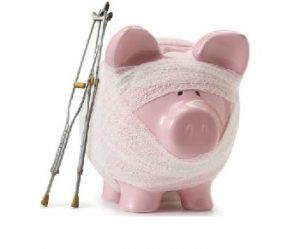Experts in getting TPD claims paid
 |
Total and Permanent Disability (TPD) Insurance provides you with a payout in the event you become totally and permanently disabled. Total and permanent disability typically refers to you suffering an injury or illness that permanently affects your ability to return to work.
The process of making a TPD Insurance claim is known to be tough due to many policies having difficult-to-understand definitions and requirements, which could result in a reduced payout for the policy holder. Through detailed knowledge of the insurance environment as well as the utilisation of executive level relationships at many top insurers, an adviser can take significant stress out of the process and will assist you in an ensuring the process is efficient. It is therefore crucial to utilise the services of an expert adviser when beginning the TPD Insurance claims process. Although we have had success in assisting with TPD (Disability) Insurance claims that have been declined or denied, it is always easier to preemptively address this by engaging a professional from the outset. |
TPD Insurance is typically taken out privately (through a financial adviser or direct from the insurer) or it can be provided by ones super fund. Each method of policy provision has specific differences, which can be advantageous or disadvantageous depending on one’s circumstances. This means our experience with these varied insurance products is invaluable to you in the event of a claim.
With 10,756 TPD Insurance Claims worth nearly $1 billion to claimants in 2013 alone [1], TPD Insurance has provided life changing financial relief to families all over Australia.
Do I have TPD Insurance inside my super fund?
Whilst all super funds are different, the majority of super funds offer some form of TPD Insurance.
Many super funds will provide you with a default level of cover, often without you specifically requesting it. This means that you may have some TPD Insurance through your super fund without realising it. At Insurance Claims Advisers we are able to investigate any existing cover you may not be aware of. By getting in touch with us at the earliest opportunity, you’re giving yourself the best chance of being comprehensively covered should disaster strike.
What are some of the key difference between TPD Insurance Policies?
| There are a number of key features that differ between TPD Insurance policies that will have a significant impact on your ability to claim your TPD Insurance benefit.
The most common type of TPD Insurance that Australian’s own is cover that is provided to them by their super fund. Generally, this cover is limited in its features when compared to what is available through a financial adviser. The key diffrence between these types of policies is often the definition of ‘Total and Permanent Disability’ and to what extent one must be unable to work in order to make a Total and Permanent Disability claim. The 2 most common definitions that impact your ability to make a TPD Insurance claim are referred to as ‘Any Occupation TPD’ and ‘Own Occupation TPD’. |
 |
Any Occupation TPD is the most common type of TPD Insurance contract, as it is typically the only definition under which cover is available through super funds. This definition generally refers to you being unable to ever work again in any occupation for which you are suited by training, experience or education. This means that even if you are unable to ever work again in your current job,you may still be ineligible to claim—for example, if you have previous experience in a job in which you are still able to work. Many super funds, including AustralianSuper, have a clause in their TPD Insurance contract that can enable them to deny a TPD claim based solely on the insurance company determining that you are able to be retrained or re-skilled in another occupation.
Own Occupation TPD generally refers to you being unable to ever work again in the occupation you were in at the time of claiming. It does not take into account your ability to work in a role for which you have prior experience or training and is therefore far easier to claim upon successfully. However, Own Occupation is typically restricted to being owned personally; that is, it cannot be owned through super. It is also more expensive and is therefore less common amongst policy holders. Due to the narrower definition of an Own Occupation, it is easier to claim on this type of TPD insurance.
 |
Other, lesser known, definitions of disability that can apply to a TPD Insurance policy include a Home Duties definition as well as an Activities of Daily Living definition. Activities of Daily living generally refers to you being unable to perform basic duties required for everyday living (bathing yourself, feeding yourself etc.) A Home Duties disability definition generally requires you to be unable to perform some of the essential duties that a homemaker would be responsible for (cooking, cleaning etc.)
With a product as complex and varied as TPD Insurance, the services of an expert adviser are invaluable when undertaking the claims process. We will be able to explain your policy to you and provide you with a level advice that you would be impossible to obtain by dealing directly with your super fund or insurance company. |
What is the TPD Insurance Claims Process?
If you are unable to work due to a serious accident or illness, you may well be entitled to a TPD Insurance claim. If you find yourself in this position do not hesitate to contact us for an obligation free initial assessment of your claim. Not only will you enjoy peace of mind that your TPD Insurance claim is in the hands of experienced professionals, we will be able to guide you step by step through the claims process to ensure you receive the maximum level of compensation you deserve. Click here to find out more about our claims process.
For your obligation free assessment on regarding claiming TPD Insurance, call us on 1300 665 356. Take a step towards a more secure future. You’ve got nothing to lose!
*Please note that every product has different definitions regarding the criteria for a claim, we will be able to advise you on the likelihood of your claim being successful after our initial consultation.
